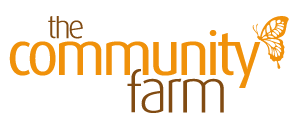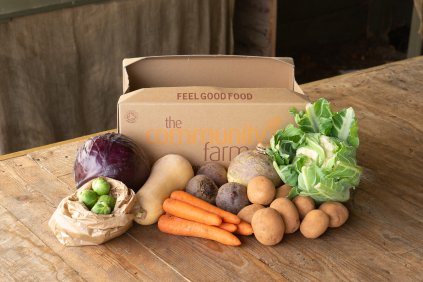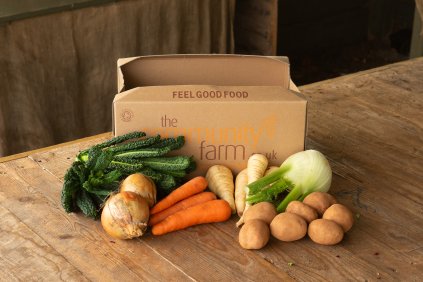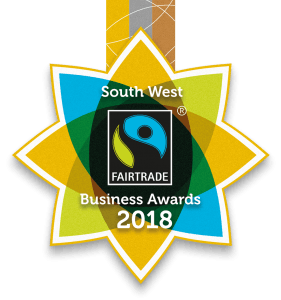One of the ideas that runs through everything that we do here on The Farm is to treat all life as though it were our family; to respect, nurture and take time to relate, to take part in a two-way dialogue.
Everything here is underpinned by our wildlife. We couldn’t grow anything without the hard work of many millions of lives, a few are human, but most aren’t.
We recognise that as long as we set ‘nature’ up as something separate and apart from ‘culture’ we can’t imagine ourselves as part of these complex systems, but somehow standing apart and having control over them. As soon as we see ourselves as owning rather than collaborating with land we start to run into trouble.
At this time of year we can sense abundance all around us. This is created in the coming together of complex ecosystems of relationships, species and lives. We feed many mouths here on the farm, not all of them are human, and on Saturday we gathered to celebrate the wild lives here.
Naturalist Chris Sperring MBE hosted the day with us, which included:
- Wildlife and sensory walks with Chris and our wonderful partners EcoWild
- Talks on Gardening for Wildlife with Sarah Pitt, the Chair of our Wildlife Group, The Impact of farming techniques on the Champion Species of The Mendip Hills with Nathan Orr from the Mendip Hills Area for Outstanding Natural Beauty, and All About Badgers with Joanna Matthew from the Somerset Badger Group
- Activities for families including pond dipping, clay creature creations, adding an extension to our insect hotel complex, potion making, sunflower planting, bug hunting and more
- Yummy soups and cakes from Wild Thyme Kitchen, single variety apple juice from our own organic apples, and cider from Chew Valley Cider
- Thanks go to Woo Town for entertaining and inspiring us all with their music
Here are some reflections on the day from Chris:
Providing for us by Chris Sperring MBE
“The connection between nature and humans is a fundamental one. We depend on nature for our very survival, from the air we breathe to the food we eat. However, our actions as a species have had a significant impact on the natural world, and we are now faced with a crisis of biodiversity loss and environmental degradation. It is clear that if we want to continue to thrive as a species, we need to work together to create the environments in which we can all flourish.
Respect and understanding are key to this process. We must recognise the value and importance of the natural world, and understand that our actions have consequences. We must also recognise that nature is not our enemy, but rather our ally. By working with nature, we can create sustainable systems that benefit both humans and the natural world.
One example of this is The Community Farm. This organic farm sees nature not as a foe, but as a friend that can help and nurture us. The farm uses sustainable farming practices that promote biodiversity and protect the soil, water, and air. They also involve the community in their work, educating people about sustainable agriculture and the importance of nature.
In addition and as can be witnessed they create superb habitats for nature that are ready and waiting for a rich diversity of wildlife to colonise.
The work of the Community Farm is just one small piece of a much larger puzzle. If we are to achieve any meaningful form of nature recovery, we need to work together on a more global scale. This means a localised ground up approach taking this good out further beyond the Chew Valley, and importantly talking to decision makers such a as local and national governments, businesses, and individuals in the effort to protect and restore the natural world, whilst at the same time thinking and acting upon feeding the nation and national food security.
As a species we humans are amazing when we work together: we could literally solve any issue. Wildlife can feel like a doom/gloom subject at the moment but it doesn’t have to be that way and I for one remain optimistic that if collectively we really want nature to recover then it will. But the point must be that we all must want it. If there’s enough of us working together the decision makers will listen, yes they really will. I hope those that came to the wildlife event enjoyed the day, and I really hope you really did take some of the ethos of the Community Farm home with you and begin the process of applying it in your gardens or local communities. The future can be great if we want it to be. See you all again soon.”
No action is too small, from planting a few irises or snowdrops, to volunteering somewhere like The Community Farm, to driving a bit less, to making a pond in your garden, to joining in the ‘no-mow May’ movement. But most of all take a moment to revel in the glory of our hedgerows, verges, parks and green spaces at this time of year. Just stop for a few seconds, listen, look and smell. Wild lives are all around us all the time. Welcome them.
By Dr Daisy Sutcliffe, Communities, Wildlife & Partnerships Manager














